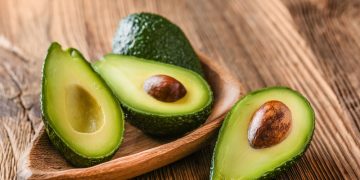Our body needs right levels of nutrients for its healthy functioning. All nutrients such as fat, carbohydrate, protein, calcium, fiber, minerals, and vitamins are essential for our body. Each of these nutrients does its own task and protects certain parts and organs in our body. No matter whatever nutrient it is, it needs to be consumed in the right amount.
Fiber is essential for healthy heart, metabolism, and to maintain right levels of blood sugar. Women need 20-30 grams of fiber, where as men need between 30-40 grams each day. Every 70 kilo calories are balanced by 1 gram of fiber. But typically we consume larger quantities of fiber every day. We will look into some of the dangers of consuming high levels of fiber.
Fiber is Essential
The food we eat is digested inside small and large intestines, then it reaches the colon and the wastes are then excreted as poop. During this journey, most of the nutrients in the food is absorbed by our body. Fiber plays a vital role in this absorption process.
Fiber prevents the absorption of excessive amounts of fats and glucose by our blood vessels and supplies the good nutrients to various organs in our body through blood. Additionally, it helps to remove unwanted toxins through the colon, and it aids in absorption of water that is needed by our body. Water plays a vital role in excreting toxins from our body through the colon. Due to this, there will be an increase in the quantity of poop excreted, in the process, it helps the digestive system to function well. It effectively reduces the duration the toxins stay in our body, and prevents constipation.
Types of fiber
There are two types of fibers that are present in the food we eat. One is soluble fiber and the second one is insoluble fiber. Both these fibers are good for our health.
- Soluble Fibres: This type of fibers is prominently found in beans, oats, flat beans, and barley. It protects our heart. It helps with proper blood circulation.
- Insoluble fibers: This type of fibers is found in whole wheat, corn, and jute seeds. It helps to prevent constipation.
Goodness due to intake of right amount of fiber
- It helps to separate good nutrients from the food we eat and releases toxins in our body through the colon. It aids with the proper functioning of digestive system.
- Fiber ensures that our body is properly hydrated. It helps to maintain the right level of water in the system.
- It reduces fat content, and there by reduces excess body weight.
- Fiber helps to maintain right levels of sugar or glucose in our blood. Additionally, it prevents type 2 diabetes.
- Prevents heart attack, chest pain, and other heart-related diseases.
- Increases the levels of good bacteria and prevents constipation.
- Prevents stroke and epilepsy that affects our brain.
- Reduces the chances of stomach and colon cancer.
- Helps with absorbing calcium and protein into our body. And aids muscles growth. Additionally, it increases growth of all the bones.
- Increases our life span.
Ill-effects attached to excess intake of fiber
- Excess levels of fiber in our body can lead to diarrhea. Also, it affects our colon.
- When you consume high amounts of beans and oats it can lead to bloating in the stomach and increases gas levels in the body. It can be quite problematic at times.
- There will be changes in blood sugar levels. And sugar levels will not be under control. This can lead to many bodily problems.
- Increase the frequency for the need to poop and urinate. It affects the digestive system.
- It makes us feel weak. Additionally, it will increase the levels of toxins in the system.
- It can lead to dehydration.
- Elevated levels of pain in lower abdomen. It can lead to kidney stone formation for pregnant women.
Ill-effects due to lower levels of fiber in our body
- When you intake lesser than 20 grams of fiber a day, it can lead to type 2 diabetes.
- As lower levels of fiber intake lead to dehydration, lack of water in our digestive system can lead to cancer in intestines.
- There will be an increase in the absorption of sugar and fat into our body through our blood vessels. This can lead to heart diseases. The increase in the level of blood sugar will lead to increase in body weight.
- Increased risk of heart attack, cardiac arrest, and stroke.
How to Prevent?
- If you have any of the above symptoms, you can bring about some changes to your diet.
- You can control the level of fiber intake, and make sure you are taking it in the right quantity.
- Consume soluble and insoluble fibers alternatively.
- Both these fibers are good for our health. At the same time, there should be proper water intake as well.
Advice for people who intake high levels of fiber
- Increase the level of water intake.
- Have a planned and well-balanced diet.
- Exercise regularly. This will ensure there is proper digestion.
- Check the label of all the food contents purchased in the market. The food you consume must have around 2 to 4 grams of fiber in it per 100 grams.
- Morning breakfast can include more fruits and less of other food items.
- Vegetables like Yam and Arbi (Taro) can be included in the diet.








